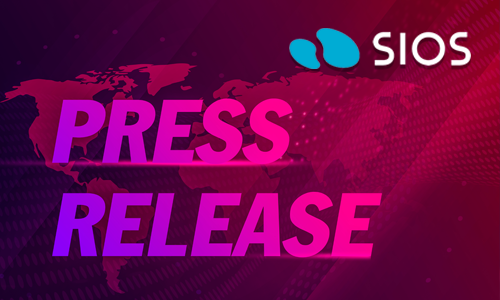From New Requirements for High Availability Protection to Sophisticated Storage and Disaster Recovery Strategies – Here Are Some of the Biggest Trends
SAN MATEO, CA – January 10, 2024 – SIOS Technology Corp., an industry leader in application high availability (HA) and disaster recovery (DR), today announced top technology predictions for 2024.
As 2023 progressed, the persistent challenges from the previous year persisted, with climate-change natural disasters, businesses grappling with ongoing labor shortages, supply chain disruptions, inflationary pressures, and global economic uncertainty. These hurdles are expected to extend into 2024, thereby heightening the demand for robust IT solutions that prioritize high availability (HA) and disaster recovery (DR). Cassius Rhue, VP of Customer Experience, SIOS Technology, predicts the following major trends driven by these expectations:
- Application high availability becomes universal. “As reliance on applications continues to rise, IT teams will be pressured to deliver efficient high availability for applications once considered non-essential. Once reserved for mission-critical systems, such as SQL Server, Oracle, SAP, and HANA, application high availability – typically delivered with HA clustering technology – will become a requirement for more systems, applications, and services throughout the enterprise.”
- Cloud and OS agnostic high availability becomes an expected requirement for most applications. “IT teams will look for application HA solutions that reduce complexity and improve cost-efficiency by supporting multiple operating systems, platforms, and environments. For example, companies with some applications running in on-prem data centers and others in cloud environments as well as those running some applications in Windows and others in Linux environments will move to HA solutions that deliver a consistent user interface and expert technical support across all of their environments.”
- The trend toward migration to SAP HANA is likely to continue in 2024. “The SAP-mandated 2027 migration will push more companies to migrate to SAP HANA. As a result, there will be an increased need for more automated and flexible high availability and disaster recovery solutions that help them bridge the gap between existing systems and the new, more modern systems that take advantage of SAP HANA’s capabilities. Organizations will look for HA solutions that help them find ways to take advantage of emerging technologies and accelerate digital transformation, without losing the HA and DR capabilities that continue to arise.”
- Automation becomes more common in high availability and disaster recovery as data and analytics increase complexity. “As the volume and variety of data and the ways through which data are collected increase, organizations will require more hands free recovery orchestration, and more information about why faults/failures occurred and how to address potential issues. Automation and orchestration tools will play a central role, eliminating error-prone manual scripting, streamlining root cause analysis, improving intelligent responses, and enhancing disaster recovery processes to further reduce downtime and enhance data availability.”
- The focus on data security and compliance will intensify.“The focus on data retention, security, and access controls will intensify prompting organizations to integrate enhanced security measures deeper into their high availability and disaster recovery solutions, services, and strategies. As the volume and variety of data as well as the channels through which data are collected and processed increase, organizations will require more security measures to be baked into their solutions.”
Sophisticated storage and DR strategies will become crucial to the demands of an increasingly dynamic and data-driven business landscape. “As the volume of unstructured data continues to surge, storage solutions are expected to prioritize scalability, tiered performance, and accessibility. Enterprises will also adopt more sophisticated and resilient DR strategies using multiple high availability (HA) nodes, and DR technologies that understand the complexity of tiered storage solutions. Cloud storage is expected to continue its ascendancy, with organizations increasingly relying on scalable and flexible cloud solutions to meet their expanding data requirements. At the same time, a growing number of companies will look to move workloads out of the cloud to on-prem environments in favor of more predictable costs and greater control over their environments.”
###
About SIOS Technology Corp.
SIOS Technology Corp. high availability and disaster recovery solutions ensure availability and eliminate data loss for critical Windows and Linux applications operating across physical, virtual, cloud, and hybrid cloud environments. SIOS clustering software is essential for any IT infrastructure with applications requiring a high degree of resiliency, ensuring uptime without sacrificing performance or data – protecting businesses from local failures and regional outages, planned and unplanned. Founded in 1999, SIOS Technology Corp. (https://us.sios.com) is headquartered in San Mateo, California, with offices worldwide.
SIOS, SIOS Technology, SIOS DataKeeper, SIOS LifeKeeper and associated logos are registered trademarks or trademarks of SIOS Technology Corp. and/or its affiliates in the United States and/or other countries. All other trademarks are the property of their respective owners.
Media Contact:
Beth Winkowski
Winkowski Public Relations, LLC for SIOS
978-649-7189
bethwinkowski@US.SIOS.com
